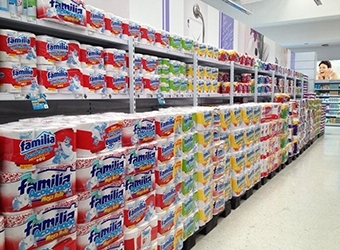By Gabriela Mancero and Peña Mancero Abogados
Article published at Newsletter of the International Bar Association Legal Practice Division – Volume 29 N° 2 september 2016
After several years of investigation, the Colombian competition agency– Superintendence of Industry and Commerce (SIC) – has decided to fine themembers of a cartel formed by a number of paper manufacturing companies including Kimberly-Clarke (US$22.3m), Productos Familia SA (US$20m), Papeles Nacionales SA (US$22.3m) and Cartones Papeles de Risaralda SA (US$1.3m) and a number of high profile individuals for entering into an agreement to fix the prices of tissue paper over a 13-year period.
Practices also involved sharing information about future pricing and agreeing on mutual marketing policies. Some of these companies came forward under the leniency programme, confessing to their taking part in the anti-competitive behaviour.
Even though the full text of the SIC’s decision had not been published at the time of writing this article, the entity has published a summary of its decision. The SIC found that the four above-mentioned tissue paper manufacturers collaborated in a scheme between 2000 and 2013 to artificially fix the prices of bathroom tissue, napkins, paper towels and handkerchiefs for the hands and face. In addition to sanctioning the companies, the competition agency also imposed fines on 21 senior managers and former officials of the four manufacturers for their role in the scheme, with penalties ranging from US$892 to more than US$113,000.
The anti-competitive practices were detected through different mechanisms, including emails found in some of the companies’ presidents’ inboxes where they acknowledged that prices had been agreedwith their competitors and jointly controlled. In fact, the companies used nicknames to identify themselves without raising suspicions. Kimberly-Clarke was called Kiosko; Familia was called Feos; Papeles was named Pitufos and Cartones was called Rosas.
An important feature of this case is that the competition agency decided not to apply any benefit to Familia notwithstanding its participation in the leniency programme.
The Colombian leniency policy offers companies involved in a cartel – which selfreport and handover evidence – either total immunity from fines or a reduction of fines which the SIC would have otherwise imposed on them.
In this case, the Superintendent determined that Familia, who was the second company to apply for the leniency programme, defaulted its obligations under the programme mainly by hiding information, lying about relevant aspects of the investigation and not presenting evidence that was in its possession. Therefore, the agency excluded that company from all applicable benefits, including a 50 per cent fine reduction.
Nonetheless, when establishing applicablefines, the SIC considered the confessionto the anti-competitive behaviour and thepublic apologies offered to the country byFamilia, thus granting a reduction in the finefinally imposed.
The SIC’s decision is still subject toremedies for it to be enforceable. Pursuant to the Colombian Contentious-Administrative Procedural Statute, the fined companies have ten business days counted as from the resolution notification date to file are consideration remedy before the SIC. If the agency confirms its decision, the administrative procedure will be exhausted and theparties will be able to start a contentious administrative litigation for the Council ofState to decide in a last instance decision.
The SIC’s decision is still subject to remedies for it to be enforceable. Pursuant to the Colombian Contentious-Administrative Procedural Statute, the fined companies have ten business days counted as from the resolution notification date to file are consideration remedy before the SIC. If the agency confirms its decision, the administrative procedure will be exhausted and the parties will be able to start a contentious administrative litigation for the Council of State to decide in a last instance decision.

